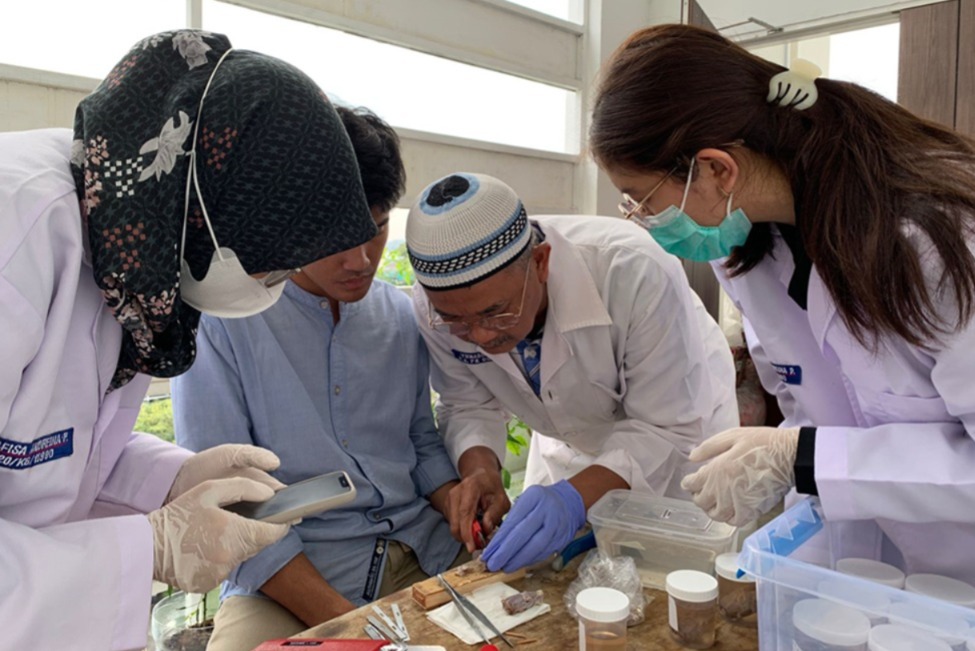The Master's Program in Dentistry (S2 IKG) at the Faculty of Dentistry, Universitas Gadjah Mada (FKG UGM), is currently exploring the potential of pineapple as a natural remedy for healing wounds on oral mucosa.
This research is supervised by Prof. Dr. drg. Juni Handajani, MKes., PhD, along with Dr. drg. Alma Linggar Jonarta, MKes, and drg. Ketut Suardita, Sp.KG(K-R)., Ph.D, and involves two students, drg. Yesica Dea Cahyani and drg. Shafira Zakia Rahma.
The pineapple (Ananas comosus) used in this research is sourced from the Gunung Kelud region, Kediri. The fruit’s content of bromelain, vitamin C, and polyphenols is believed to accelerate wound healing, reduce inflammation, and enhance the epithelialization process.
“Pineapple has great potential to accelerate wound healing on oral mucosa. With its natural components, we hope that pineapple can reduce dependency on synthetic drugs and antibiotics,” said Prof. Juni Handajani.
This research not only supports the academic vision of the S2 IKG FKG UGM program but also results from a collaboration with the Kediri Institute of Health Sciences (IIK). This partnership aligns with several research focuses of the program, such as mucosal regeneration, gerodontology, dental health service management, as well as dental health prevention and promotion.
The study is also relevant to several Sustainable Development Goals (SDGs). In terms of Goal 3: Good Health and Well-being, the use of pineapple for oral mucosal wound healing offers an effective natural alternative and reduces the potential side effects of synthetic drugs.
Additionally, Goal 9: Industry, Innovation, and Infrastructure is supported by promoting innovation in the development of health products based on natural ingredients, creating opportunities for the pharmaceutical and cosmetic industries to develop safer and more environmentally friendly products.
Goal 12: Responsible Consumption and Production is also addressed through the sustainable use of natural resources. Pineapples from Gunung Kelud are utilized with a focus on resource conservation, promoting responsible production practices.
The research also contributes to Goal 15: Life on Land, by supporting the conservation of terrestrial ecosystems through the sustainable cultivation of pineapples. It raises awareness of the importance of medicinal plants and their benefits for human health.
***
The results of this research are expected to open new opportunities in developing safe and effective natural therapies for the treatment of oral mucosal wounds.
“We hope this research will serve as a foundation for developing future health products that are more natural and environmentally friendly,” added Dr. drg. Alma Linggar Jonarta.
This research not only strengthens FKG UGM’s position as an innovative research center in the field of dental health but also makes a tangible contribution to achieving sustainable development goals through a scientific approach that prioritizes human well-being and environmental preservation.
With all its potential, pineapple is not just an ordinary agricultural commodity but also a new hope in the health sector, particularly for more natural and sustainable healing of oral mucosal wounds.
Authors: Prof. Dr. drg. Juni Handajani, MKes., Ph.D., Tryanindita, Pram

